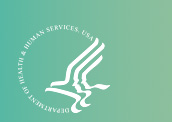THE TRANSFORMATIVE POWER OF HEALTH CARE REVEALS ITSELF IN WONDROUS WAYS:
In a grandmother dressing her grandchild for school
In a middle-aged man living free of addiction
In a young person mentoring his peers.
Through the Ryan White HIV/AIDS Program, that power reaches underserved people living with HIV/AIDS by transcending barriers that often define access to health care in the United States. The program touches people who just happen to have been born on the wrong side of the poverty line: people in neighborhoods with too few health care providers or people whose most immediate emergencies may not be medical treatment but a place to sleep at night and food for their families.
THE RYAN WHITE HIV/AIDS PROGRAM REDUCES DISPARITIES IN ACCESS TO HEALTH CARE FOR MORE THAN HALF A MILLION PEOPLE EACH YEAR.
This strategic success is the result of many tactical successes: enrolling people in care—and keeping them there; paying for essential services; and reaching people whom other payors don’t.
These successes offer lessons applicable far beyond HIV/AIDS. In them lies irrefutable evidence that we can provide health care to the poor and underserved. We can build capacity in communities with a shortage of health care resources. We can reach outside our own experience to understand and respect the perspectives, experiences, and values of the host of cultures that make America what it is.
OUR SUCCESSES ARISE FROM THE POWER OF CONNECTIONS.
Our successes arise from connections among providers who piece together a vibrant fabric of health care services; connections among government agencies, local organizations, and private citizens, debating yet always collaborating to fill holes in systems of care; and connections between providers and consumers working in concert to build better care and better lives.
LEARNING the ALPHABET
| a Includes MAI funding. b Recommended funding level. |
||
| PART A | PART B | PART C |
|---|---|---|
Grants to Eligible ••• Grants to Transitional |
Care Grants to ••• Grants to ••• AIDS Drug Assistance Program Grants to States and Territories |
Early Intervention ••• Capacity Development Grants |
| PART D | PART F | GLOBAL HIV/AIDS PROGRAM |
Services for Women, |
Special Projects of ••• AIDS Education and ••• Dental Programs: ••• Minority AIDS Initiative (MAI) |
Implements the international ••• Supports organizations around the world in their
efforts to ••• Funded through the PEPFAR |








